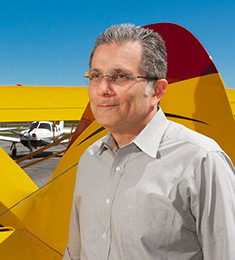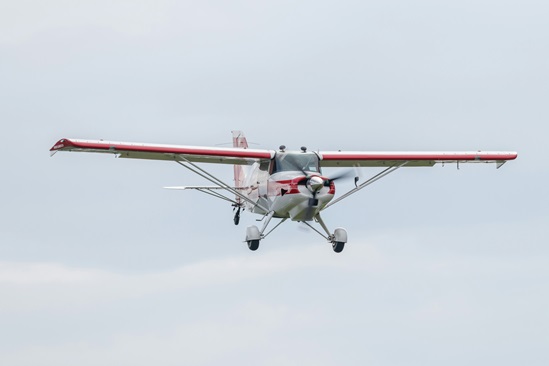

Warren Silberman
- Former Manager, FAA Aerospace Medical Certification
- Doctor of Osteopathic Medicine
- Expert in Aerospace/Preventive Medicine
- Pilot since 1986
- PPS participants-only:
Article archives >>
Choosing medications and medical devices
Ever wonder how the FAA makes a decision about approving a medication?
The FAA does not review every medication that comes on the market. It will wait until airmen or the pilot advocacy organizations (AOPA, the Experimental Aircraft Association, etc.) begin to ask about a particular medication or if their consultants recommend it consider a newer medication. The FAA will not consider a medication or a new medical device (generally this means a device that is permanently inserted into the body) until it has been approved by the Food and Drug Administration (FDA) and on the market for one year. When a medication first is released it has undergone studies on lower numbers of people who agree to be test subjects. Once a drug has been reviewed and approved by the FDA, the pharmaceutical companies will advertise the medication and it becomes relatively more widely used. The FAA wants to see what aeromedically relevant side effects are then noted before it even begins to review the medication for acceptance in pilots.
What might be adverse aeromedical side effects? Medications that affect one's mental state, such as a pain relief med, and those that affect your vision, such as the erectile function medication Viagra. Other examples would be medications that can affect the heart.
The FAA has what is known as a Pharmacy and Therapeutics committee made up of FAA physicians who review the medication and its side effects and make a determination that the medication is appropriate for aviation activities. The recommendations of that committee are then presented to the federal air surgeon and a decision is made.
An airman may say that a particular medication that is unacceptable for the FAA does not have the negative aeromedical side effect, so why can't he or she be allowed to take the medication? Well the answer may be a bit complex. The same medication has different effects on each individual and even someone who does not develop a particular side effect could develop a negative effect when he or she changes his or her diet or takes another medication that in combination will react adversely.
As for medical devices, such as a metal device that replaces one's spinal disc, the FAA also needs to review whether the device is widely accepted by the physicians who use such things and whether there are side effects from the device.
Make sure you review the AOPA's database of medications when your treating physician is recommending a medication, especially one that has just been released.
For more expert advice and professional assistance with protecting your pilot and medical certificates all year round, visit—and consider joining—AOPA Pilot Protection Services.
Dr. Warren Silberman is the former manager of FAA Aerospace Medical Certification and a doctor of osteopathic medicine. A pilot since 1986, he is recognized nationally as an expert in aerospace/preventative medicine.
Choosing medications and medical devices
Ever wonder how the FAA makes a decision about approving a medication?
The FAA does not review every medication that comes on the market. It will wait until airmen or the pilot advocacy organizations (AOPA, the Experimental Aircraft Association, etc.) begin to ask about a particular medication or if their consultants recommend it consider a newer medication. The FAA will not consider a medication or a new medical device (generally this means a device that is permanently inserted into the body) until it has been approved by the Food and Drug Administration (FDA) and on the market for one year. When a medication first is released it has undergone studies on lower numbers of people who agree to be test subjects. Once a drug has been reviewed and approved by the FDA, the pharmaceutical companies will advertise the medication and it becomes relatively more widely used. The FAA wants to see what aeromedically relevant side effects are then noted before it even begins to review the medication for acceptance in pilots. To continue reading…
Please login or join AOPA and AOPA Pilot Protection Services now to have access to these exclusive expert resources.
Dr. Warren Silberman is the former manager of FAA Aerospace Medical Certification and a doctor of osteopathic medicine. A pilot since 1986, he is recognized nationally as an expert in aerospace/preventative medicine, and is a regular writer for AOPA’s Pilot Protection Services.


